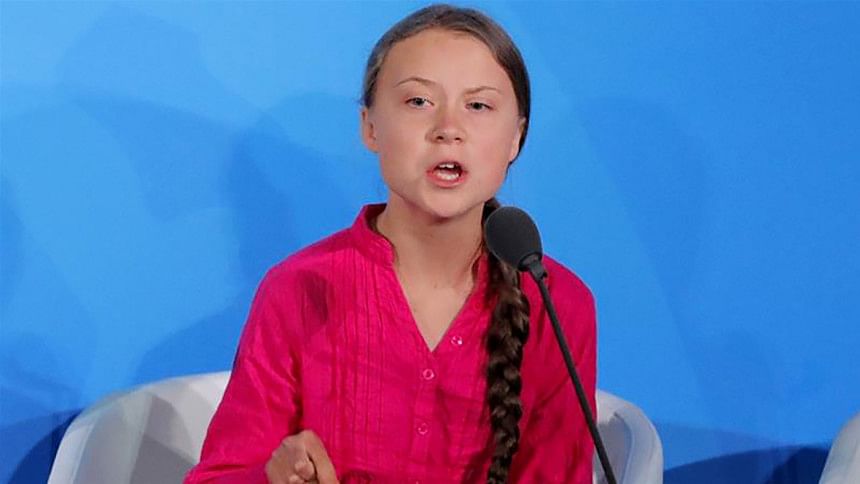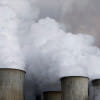Greta's rise from lone protester to Nobel favourite

Swedish teenage climate activist Greta Thunberg is the favourite to win the 2019 Nobel Peace Prize, bookmakers have said, after she rose to lead a millions-strong youth movement demanding action on global warming.
The 16-year-old is tipped to become the youngest ever recipient of the award, which will be announced next week and has previously been won by major figures such as Nelson Mandela, Jimmy Carter and Mikhail Gorbachev.
She was named as the frontrunner by a number of European bookmakers, with betmaker Ladbrokes putting her at 4/6, above potential rivals including the Pope and the U.N. refugee agency.
"It's hard to argue against the impact Thunberg's actions have had globally, and that's reflected in her odds as the favourite," said Ladbrokes spokeswoman Jessica O'Reilly.
Here is a timeline of how Thunberg rose from a solo campaigner to the leader of a global movement:
August 20, 2018: Swedish student Thunberg, then aged 15, skips school to protest outside parliament for more action against climate change.
August 26, 2018: She is joined by fellow students, teachers and parents at another protest and begins attracting media attention for her climate campaign.
September 2018: Thunberg begins a regular 'strike' from classes every Friday to protest climate issues. She invites other students to join her weekly "Fridays for Future" campaign by staging walkouts at their own schools.
November 2018: More than 17,000 students in 24 countries take part in Friday school strikes. Thunberg begins speaking at high-profile events across Europe, including U.N. climate talks in Poland.
February 2019: Protests directly inspired by Thunberg take place across more than 30 countries, from Sweden to Brazil, India and the United States.
March 2019: Thunberg is nominated for a Nobel Peace Prize. The number of students taking part in school strikes hits more than 2 million people across 135 countries.
May 2019: Thunberg is named one of the world's most influential people by Time magazine, appearing on its cover. "Now I am speaking to the whole world," she wrote on Twitter.
July 2019: Conservative and far-right lawmakers urge a boycott of Thunberg's appearance in the French parliament, mocking her as a "guru of the apocalypse" and a "Nobel prize of fear".
August 1, 2019: Thunberg hits back at "hate and conspiracy campaigns" after by conservative Australian commentator Andrew Bolt described her as a "deeply disturbed messiah".
August 5, 2019: Some 450 young climate activists from 37 European countries gather in Switzerland to discuss the movement's development.
August 14, 2019: Thunberg sets sail from Britain for the United States to take part in a U.N. climate summit. Meanwhile, the total number of climate strikers reaches 3.6 million people across 169 countries.
August 28, 2019: Thunberg arrives at New York Harbor in a zero-carbon emissions vessel, completing a nearly 14-day journey from England to take part in a U.N. climate summit.
September 13, 2019: Thunberg takes her mission to U.S. President Donald Trump's doorstep with a protest outside the White House.
September 18, 2019: Thunberg is one of four students invited to a U.S. congressional hearing to provide the next generation’s views on climate change.
September 23, 2019: Thunberg delivers a blistering speech to leaders at the U.N. summit, accusing them of having "stolen my dreams and my childhood with your empty words".
September 24, 2019: The teenager hits back at mockery from the U.S. President Donald Trump, changing her Twitter biography to quote his comments.
September 25, 2019: Thunberg is named as one of four winners of the 2019 Right Livelihood Award, known as Sweden's alternative Nobel Prize.

 For all latest news, follow The Daily Star's Google News channel.
For all latest news, follow The Daily Star's Google News channel. 








Comments